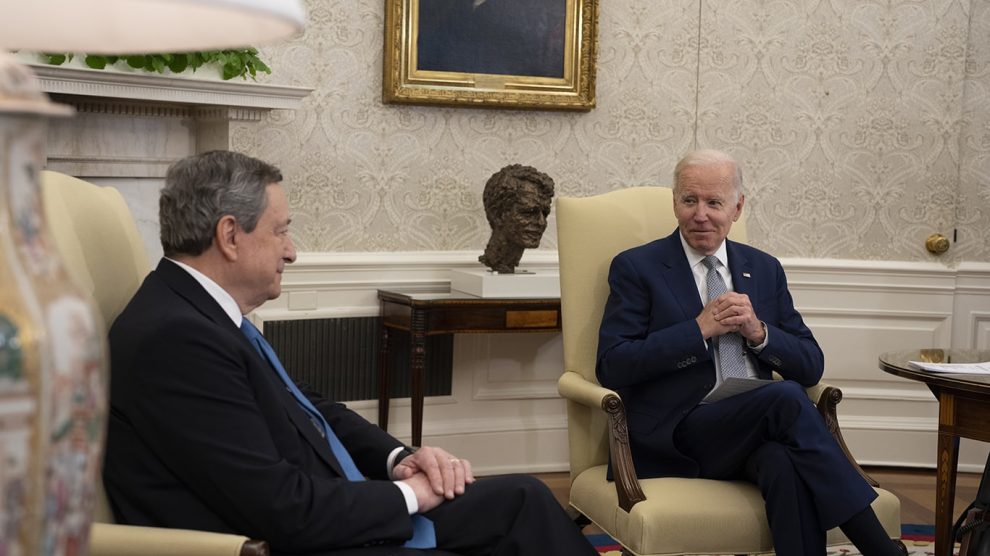Kudos, Italy, vis a vis China. “I must say that I believe that Italy has eyes very wide open about the [People’s Republic of China], about their coercive actions around the world”. Thus spoke the United States Deputy Secretary of State, Wendy Sherman.
- She was speaking at a virtual roundtable with European journalists, which centred on the Biden Administration’s approach to China.
We’re in this together. The event aimed to underscore the US’ determination to bolster Transatlantic relations and coordinate on the China issue, much like the US is doing with countries in the Indo-Pacific area, as detailed by Secretary of State Antony Blinken in his recent speech.
- To that end, Ms Sherman held several calls with her homologues – including Ettore Sequi, Secretary General of the Italian Ministry of Foreign Affairs.
- She also took part in a bilateral meeting between President Joe Biden and Prime Minister Mario Draghi, which she deemed “excellent”.
Starting with investments. As Decode39 often reports, Chinese investments in Europe – and Italy – can be obscure vessels for Beijing’s interests, which include technology transfer, influence and strategic leverage.
- “I think Draghi […] very much understands how the PRC is operating in the world,” noted Deputy Secretary Sherman during the roundtable event, adding that he, too, has his “eyes wide open.”
- PM Draghi did reinforce the government’s screening powers when it comes to protecting strategic assets.
That’s quite the U-turn. A mere three years ago, Italy became the first and only G7 country to enter the Belt and Road Initiative, Beijing’s massive investments and infrastructural project aiming to project its influence far and wide.
- Rome’s signing of the BRI’s Memorandum of Understanding did not yield meaningful results – it was symbolically important but not legally binding – and PM Draghi eventually froze it.
The Western alternatives to the BRI have coalesced into two similar – and arguably, complementary – projects: the US’ Build Back Better World (B3W) and the European Union’s Global Gateway.
- Both are geared to offer investments and support to third countries, but they differ substantially in not having any strings attached. In essence, Brussels and Washington intend to counter China’s economic and political coercion by setting standards of openness, as Deputy Secretary Sherman noted during the roundtable event.





